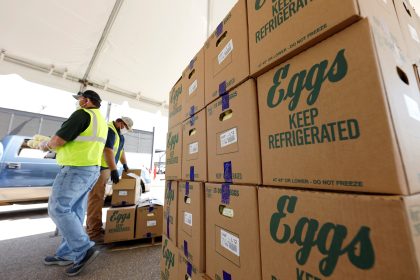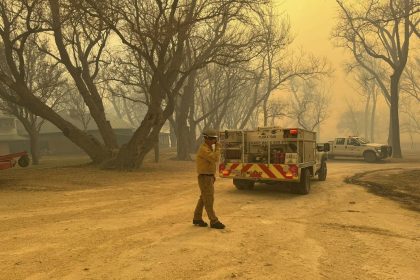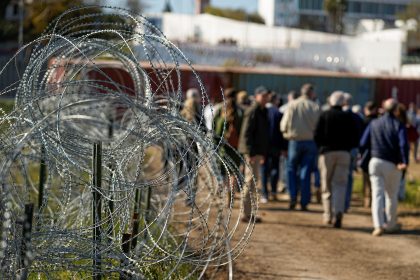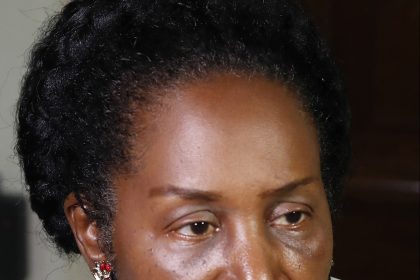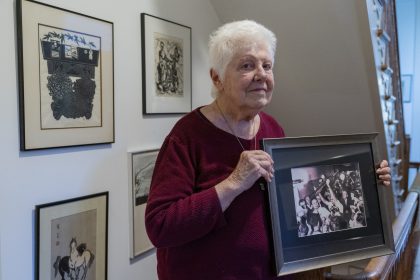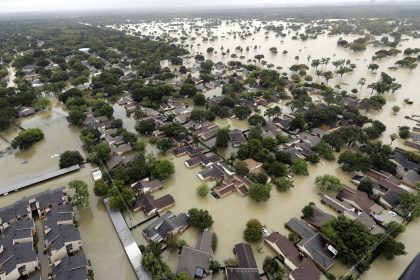In Texas, Buying Lottery Tickets Just Got More Convenient. Maybe Too Convenient
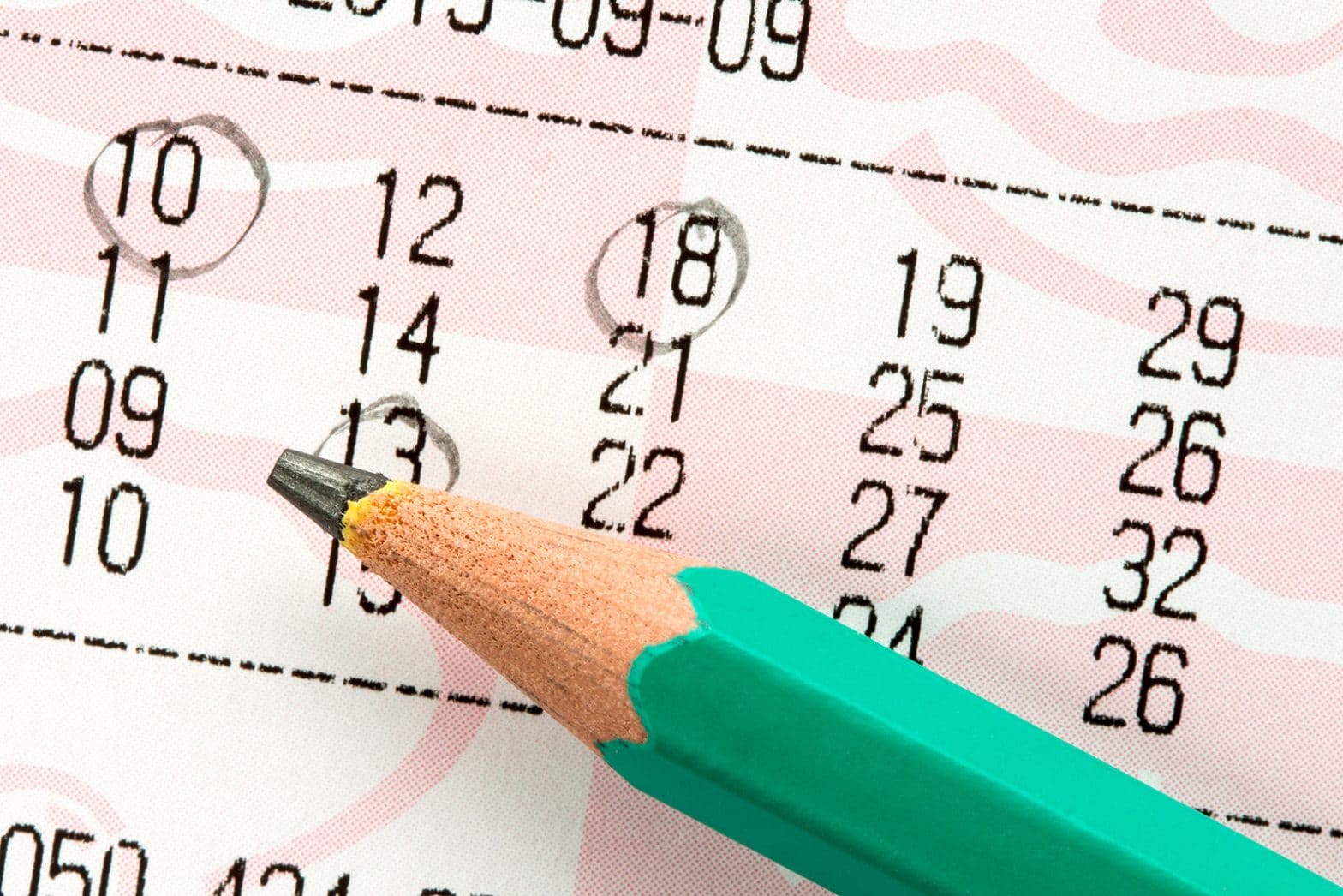
AUSTIN, Texas — Charlie Thomas, a home health care provider who also scrubs floors in the evening, says he buys lottery tickets “every time I get a paycheck.”
Thomas, 55, has been playing the Texas Lottery for two decades. His “fortune hunting” takes a $30 bite out of his weekly pay, but he’s won about $1,000 over the years. His most recent good fortune was a $100 win on a bingo lottery ticket.
He was less lucky one day last month: The $2 scratch-off he bought at an East Austin convenience store came up empty. But he wasn’t discouraged.
“I don’t want to be rich,” Thomas said. “I’d be satisfied with $40,000 — just enough to buy a double-wide, an acre of land, an old truck and pay my bills.”
Thomas and other lottery enthusiasts in the Lone Star State are about to have more opportunities to play, thanks to an innovation that is sure to pump up lottery revenue — and rankle critics who say state-sanctioned gambling disproportionately harms low-income communities.
Since early November, Texans have been able to buy lottery tickets in the checkout lanes of the state’s more than 1,500 Dollar General stores. Shoppers at the discount giant can now grab Powerball and Mega Millions tickets while in line to pay for their other purchases. Clusters of $4 and $10 game tickets reminiscent of gift cards hang from a colorful jackpot display by the register, virtually impossible to overlook.
Other larger retailers in Texas also sell lottery tickets, but customers must buy them at the stores’ service centers or through cash-only vending machines. The Texas Lottery plans to expand its practices with Dollar General, the nation’s first “in-lane” offering of lottery tickets, to other big-box retailers, beginning later this year. Several other states also are moving toward the practice, long a lottery industry priority.
The move comes as state lotteries are facing increasing competition from new casinos, legalized sports betting and commercialized fantasy sports games. Meanwhile, seven states (Georgia, Illinois, Kentucky, Michigan, New Hampshire, New Jersey and Pennsylvania) now allow people to buy lottery tickets online.
“I can tell you that there’s more and more competition now in the marketplace than there was before,” said David Gale, executive director of the North American Association of State and Provincial Lotteries. In the past, he said, “you had to get on a plane and go to either New Jersey or Las Vegas” for a casino game. “Now, everybody is within a three-hour car ride to some sort of casino.”
Texas Lottery officials say in-lane sales could dramatically boost revenue. Dollar General does not release sales projections, but spokeswoman Crystal Ghassemi said the new lottery option has been “well-received” by the chain’s customers.
Texas Lottery retailers earned $335.9 million in commissions and incentives in fiscal 2019, from nearly $6.3 billion in sales, both all-time highs. Since it started in 1992, the Texas Lottery’s sales of scratch tickets and draw games have generated more than $30 billion in state revenue for education, veterans and other programs.
All but five states now have lotteries. Mississippi in November became the latest state to add a lottery, which sold $8.9 million in its first six days.
Lottery opponents, however, have long argued that the games lure needy and low-income participants who can least afford to pay. “They’re exploiting folks in our communities that we should be helping,” said Rob Kohler, a consultant for the Texas Baptist Christian Life Commission who has testified against the lottery in the state legislature.
Les Bernal, national director of Stop Predatory Gambling, a Washington, D.C.-based nonprofit that opposes government-sanctioned gambling, called in-lane sales “an example of the predatory practices” lotteries use to encourage impulse buys in low-income communities.
“They’re advertising the lottery as kind of a Hail Mary investment strategy,” Bernal said.
Stop Predatory Gambling is launching a national campaign to slash the amount of money that low- and middle-income players spend on lotteries by 50% over the next eight years.
Proposals include halting advertising to low-income populations, banning the sale of lottery products at check-cashing outlets and forbidding the sale of high-priced lottery tickets in low-income neighborhoods.
Curtailing the marketing of in-lane lottery products will “certainly be a part of that campaign,” Bernal said. The strategy will vary from state to state, he said, and could include advocating action by legislatures or regulatory changes.
Gale, director of the state and provincial lotteries association, said “there are those out there that would like to say that we target the poor,” but that “the makeup of the lottery player profile within a state pretty much mirrors the population of the state.”
A 2018 study conducted for the Texas Lottery by the Hobby School of Public Affairs at the University of Houston found that in 2018, 35% of lottery players had incomes below $40,000, 41% earned between $40,000 and $100,000 and 24% had incomes above $100,000.
“The Texas Lottery does not market disproportionately to low-income participants, and any criticism suggesting such is simply not true,” Texas Lottery Director Gary Grief said in a written response to questions. “A business does not achieve $6+ billion in sales … by appealing to only one type of person.”
Texas’ arrangement with Dollar General appears to be the first of its kind, but other states are exploring the concept. Lottery officials in Kentucky and Arizona say they are moving toward implementation of in-lane programs.
“The reason we’re trying to work so hard to get this in-lane is because it offers us another distribution point and it probably helps impulse sales,” said Tom Delacenserie, CEO of the Kentucky Lottery. “For the consumer, it just makes it easier because it’s one less stop they have to make in that store.”
Keith Whyte, executive director of the National Council on Problem Gambling, said his organization is not opposed to in-lane sales but has concerns.
“There are concerns that there are going to be kids in those (checkout) lanes that are going to be exposed to a lot more promotion” of a product intended for adults, he said. “We’re saying that there needs to be some additional sensitivity, compliance enforcement provisions — to make sure we’re minimizing potential harm.”
Whyte says his organization works with lotteries in Texas and other states to combat problems associated with gambling, including addiction. Each state has a minimum playing age, which varies from 18 to 21.
Of the $91.3 billion in sales by U.S. lotteries in fiscal 2019, $25.1 billion went to state and local governments for services such as education, infrastructure, health care, pensions, conservation and elderly assistance, according to data from the state and provincial lotteries association. Lotteries paid out $52.8 billion in prizes, and the rest went toward retailer compensation and lottery operations.
In Texas, public schools are the biggest recipients of lottery revenue, though one review by the Center for Public Policy Priorities, an Austin-based nonprofit, found that the $1.5 billion a year the lottery funnels to schools covers less than a week of operating expenses.
State Rep. Rafael Anchia, a Dallas Democrat, said he is concerned about the lottery’s regressive effects on low-income constituents. But he worries that getting rid of the lottery would hurt his constituents even more.
“The bottom line is the state of Texas has very few revenue streams on which it relies to fund the government, especially public education,” he said, “and it remains very difficult to figure out how you’re going to plug that hole.”
———
©2020 Stateline.org
Visit Stateline.org at www.stateline.org
Distributed by Tribune Content Agency, LLC.

















